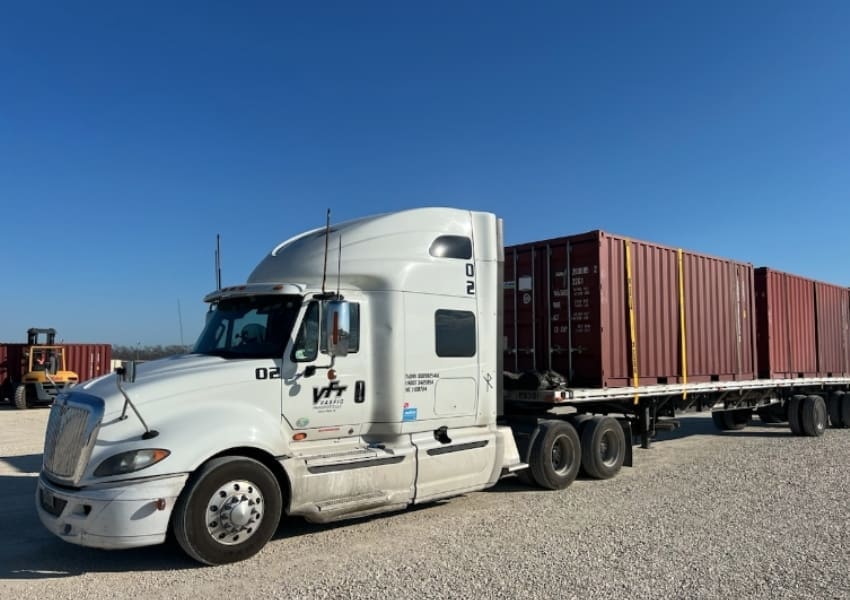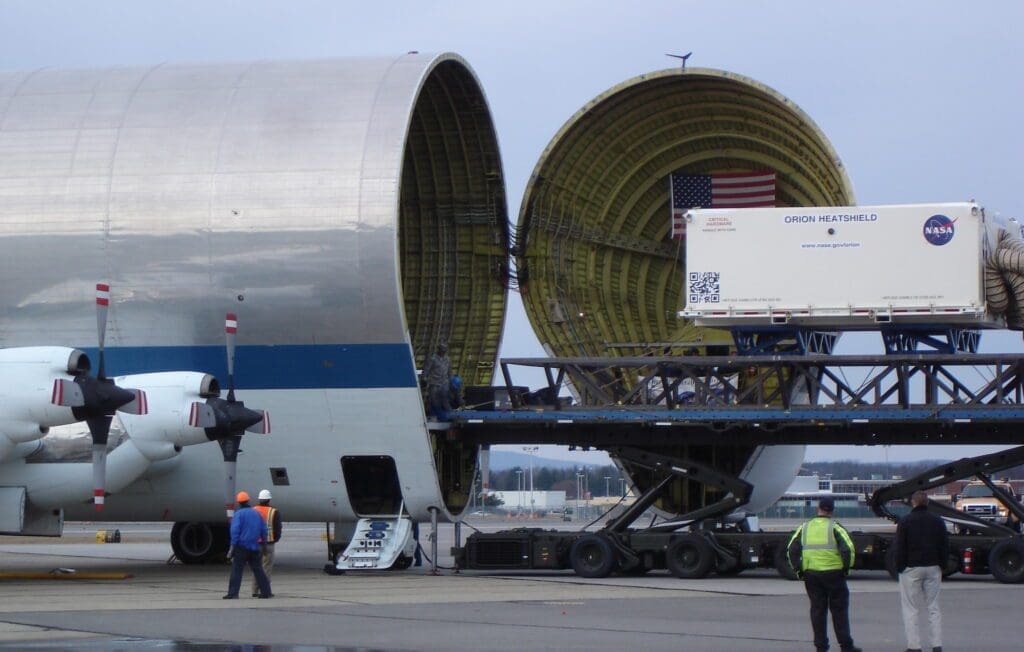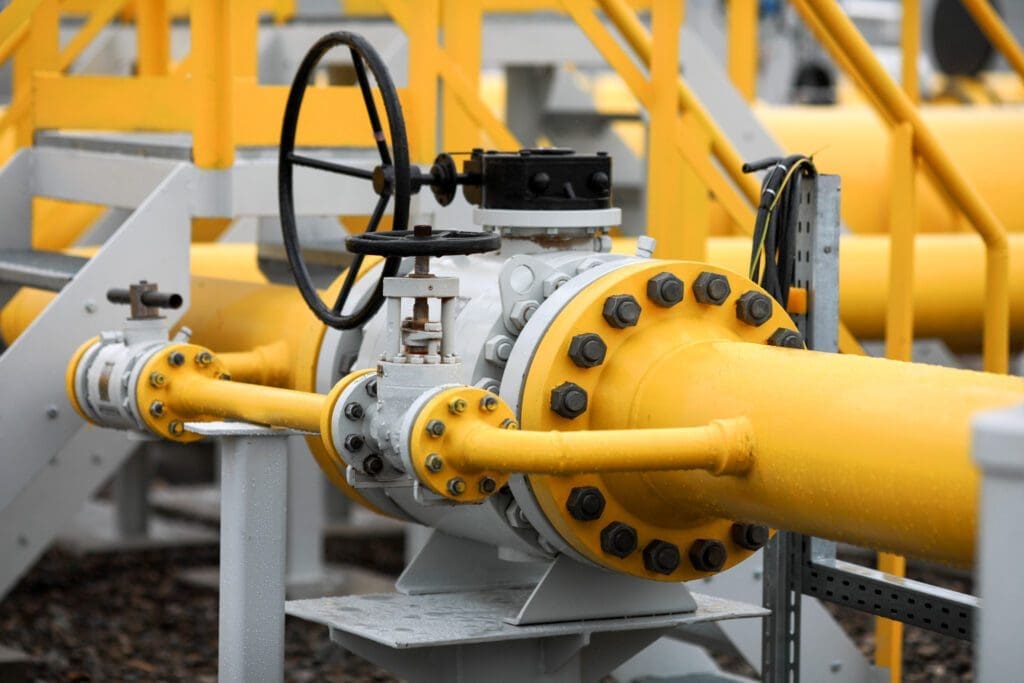Flatbed trailers are open-deck platforms without sides or a roof, making them ideal for transporting goods that aren’t easily loaded into enclosed vehicles. This basic yet versatile design makes it perfect for transporting oversized, heavy, or irregularly shaped loads that don’t fit into standard trailers. Flatbed shipments are crucial for industries like manufacturing, construction, and energy because they offer the essential adaptability, durability, and flexibility required for challenging loads. Next Exit Logistics arranges flatbed freight shipments for the unique, the unusual, and the impossible, on a weekly basis. Keep reading to learn more about how our freight brokerage services save our clients time and frustration.
Key Benefits of Flatbed Freight Shipping
Here’s a detailed breakdown of the benefits of flatbed shipping:
- Versatility: Flatbed trailers can transport a wide range of cargo, from containers and lumber to industrial machinery.
- Dimensional Flexibility: The absence of sides or a roof makes it easy to haul very heavy, extra wide, and irregularly shaped loads.
- Easy Loading and Unloading: The ease of loading and unloading from all sides, including the top and back — without the need for loading docks — reduces cargo handling times.
- Fuel Efficiency: Flatbeds offer improved fuel efficiency compared to enclosed trailers because they’re lighter in design and use less fuel to haul loads over long distances.
- Compatibility: Can be used in conjunction with cranes, forklifts, and other loading and unloading equipment for safe handling.
- Time and Cost Efficiency: Quick freight handling and the ability to transport various types of cargo can save time and money in the long run.
- Damage Prevention: Chains, straps, edge protectors, and other methods of securing prevent damage to cargo and limit shifting and tilting during transit.
- Increased Payload Capacity: The open-deck design offers more usable space for optimized payload per trip and space for wider and longer items.
- Versatility Across Industries: Flatbed shippers are in demand across multiple sectors because of their unmatched flexibility, from construction and manufacturing to energy and aerospace.
Types of Flatbed Trailers and Their Uses
Flatbed trailers come in several different configurations to accommodate different load types and height restrictions.
- Standard Flatbeds: The most common type of flatbed trailers, they are flat from front to back with no walls or roof. They are ideal for transporting lumber, pipes, heavy machinery, and other general freight.
- Step Deck Trailers: They have a raised front deck and a lower rear deck to fit taller loads that exceed the height restrictions of standard flatbeds. They are perfect for large equipment and industrial components.
- Double Drop Decks: These trailers have both front and rear deck drops that create a well in the middle. They are used for extra-tall cargo that requires maximum clearance, like construction machinery.
- Extendable Flatbeds: Also known as stretch trailers, they can be lengthened to carry extra-long freight; for instance, wind turbine blades, steel trusses, and large pipes for oil rigs.
Each type of flatbed trailer offers unique advantages, depending on cargo dimensions and transport needs.
Legal and Regulatory Considerations of Flatbed Shipping
Flatbed shipping must comply with multiple legal and regulatory guidelines to ensure safety, efficiency, and sustainability. Here are the three most important considerations:
- Weight Limits: This is by far the most critical factor for flatbed shipments. Most U.S. states follow the federal gross vehicle weight limit of 80,000 pounds, including the truck, trailer, and cargo. Exceeding these limits without proper permits can result in fines, other legal implications, and transportation delays.
- Damage Prevention: Transportation regulations require proper cargo securement using chains, straps, edge protectors, and tarps. The Federal Motor Carrier Safety Administration (FMCSA) mandates specific tie-down methods based on load type, size, and weight to reduce the risk of cargo shifting or falling during transit.
- Fuel Efficiency: Transportation companies are increasingly expected to reduce greenhouse gas emissions. Because of their open design, lighter weight, and streamlined loading processes, flatbed trailers contribute to lower fuel consumption and a smaller carbon footprint..
Industries That Rely on Flatbed Freight
Next Exit Logistics offers specialized flatbed freight solutions for industries that routinely need to transport heavy, oversized, irregularly shaped, or high-value loads. The unmatched flexibility and accessibility of flatbed trailers make them the go-to choice for a wide range of industries.
- Construction: Relies heavily on flatbeds to move steel beams, scaffolding, lumber, heavy machinery, and other loads directly to job sites, often in areas without loading docks.
- Renewable Energy: Uses flatbeds to transport large components like wind turbine blades, solar panels, and energy storage units that require secure, open-air transport.
- Agriculture: Depends on flatbed trailers for hauling equipment, hay bales, irrigation systems, and bulk feed, often across rural and remote areas.
- Government & Military: Utilizes flatbeds for moving vehicles, combat equipment, and infrastructure materials efficiently and securely.
- Aviation: Manufacturers and suppliers use flatbeds to transport aircraft parts, engines, and ground support equipment that do not fit in enclosed trailers.
Choosing the Right Flatbed Broker
Picking the right flatbed freight broker can make or break your logistics operation, especially when you’re dealing with complex, oversized, or high-value cargo. Here’s what makes Next Exit Logistics the first choice among flatbed brokers:
- Experience in Handling Specialized Cargo: Whether it’s heavy equipment, oversized loads, or sensitive machinery and components, we understand the exact requirements for permits, securement, and routing for each kind of shipment. We will find a carrier with the right experience to do the job.
- Access to a Broad Range of Equipment and Vetted Carriers: We leverage our extensive array of trusted and vetted carriers to match each shipment with the right type of flatbed trailer and appropriate loading and unloading equipment.
- Proven Track Record in Flatbed Logistics: Our track record in flatbed logistics is built on reliability, transparency, timeliness, extensive carrier networks, and problem-solving under pressure — elements that separate us from other freight brokers.
FAQs about Flatbed Shipping
What questions should I ask a flatbed freight broker?
These three questions are the most important:
– What specific experience do you have with flatbed freight and shipments like mine?
– Are you familiar with the type of flatbed trailer needed for this particular shipment, the loading and unloading – equipment required, and the appropriate securement, route planning, and permitting requirements?
– Can you provide real-time tracking for constant visibility of this shipment from source to destination?
What is the maximum cargo height for a flatbed trailer?
The maximum legal height for cargo on a flatbed trailer is usually 8.5 feet (102 inches). Roughly 8 feet.
What is the most common flatbed freight?
It’s not possible to determine one single “most common” flatbed freight. Construction materials like lumber, steel, and pipes; industrial machinery and equipment; and oversized loads are common flatbed freight loads.
What should I look for in a flatbed freight broker?
Here are the most important elements to look out for:
– FMCSA registration and a history of compliance with applicable regulatory standards.
– Experience and specialization in flatbed shipping and an extensive carrier network.
– Experience with sector-specific flatbed freight needs for construction, manufacturing, and other industries.
– Adequate risk management practices and insurance coverage to protect shipments from loss or damage.
– Competitive flatbed shipping rates with optimal fuel costs and minimal surcharges.
How will my freight be secured on a flatbed?
Depending on the type of cargo, your freight will be secured on a flatbed with a combination of chains, straps, edge protectors, tarps, and other specialized securement options.
Partner with Next Exit Logistics for a Superior Flatbed Shipping Experience
Next Exit Logistics offers customized logistics planning and advanced expertise to process your flatbed shipments. We constantly strive to understand your specific needs and bring you the best advantages of flatbed shipping, from easy loading and unloading and fuel efficiency to damage prevention and increased payload capacity. Our proven reliability, extensive carrier network, and deep understanding of regulations and permitting requirements separate us from the competition. Contact us today to streamline your flatbed shipments with personalized service and comprehensive support.
Contact us today to streamline your flatbed shipments with personalized service.




